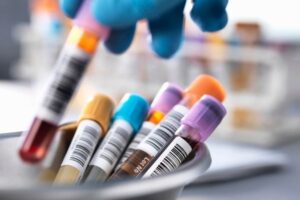Sterling Pathology urges scalable testing and PCR tests
LOS ANGELES—A difficult winter looms with Covid-19 cases climbing amid problems with testing access and implementation, warns Sterling Pathology lab’s medical director.
“We are headed toward a difficult winter with Covid-19, variants and continued testing accessibility problems,” added Dr. Yang, Sterling Pathology medical director. “We need to be mapping out a scalable plan for communities and institutions that includes PCR tests as well.”
“The bottom line is, I think, uncertainty,” said Jeffrey Duchin, health officer for the Seattle and King County public health department, in an interview with PBS. Duchin has been involved in handling the COVID response since the earliest days of the U.S. outbreak.
“We’re experiencing a new virus, a newly emerged pathogen, and we’re trying to fight it with new tools that we don’t have a lot of experience with,” he told PBS. “And we’re dealing with unpredictable human behavior … which is a very important factor as well, and environmental factors that may influence the severity of COVID outbreaks and how well it transmits.”
Rapid tests can deliver results within 15 minutes and are becoming more popular because of their speed of reporting Covid-19 positive results. However, PCR tests are the “gold standard” and despite the longer 24-48 hour time window for results and can even detect results in asymptomatic cases.
The tests Sterling Pathology offers are FDA-approved for emergency use authorization (EUA) during the COVID-19 pandemic. The pathology and genomics lab offers tailored programs that allow large organizations like schools, businesses and governments to administer and oversee scalable testing.
“Preparedness and testing are our greatest weapons against this lethal virus and its variants that continue to spread,” said Dr. Yang. “Until we achieve scalable testing across institutions, we will continue to see these same reports and outbreaks.”
Sterling Pathology’s molecular testing is capable of detecting active COVID-19 infections in the human body. Unique genetic markers of the virus can be found in RNA that only remains in the body while the virus invades and replicates itself. The benefits of molecular testing is its sensitivity in detecting active infections, allowing patients to receive appropriate treatment options from their Care Provider, and take measures to prevent spreading the infections.


